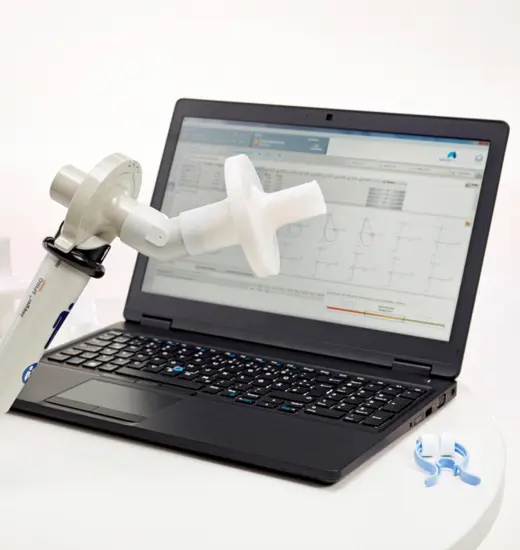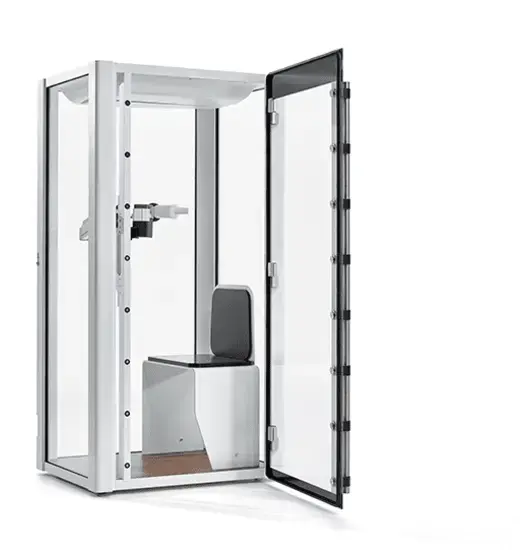ARTIQ.PFT for SentrySuite™ Software Solution

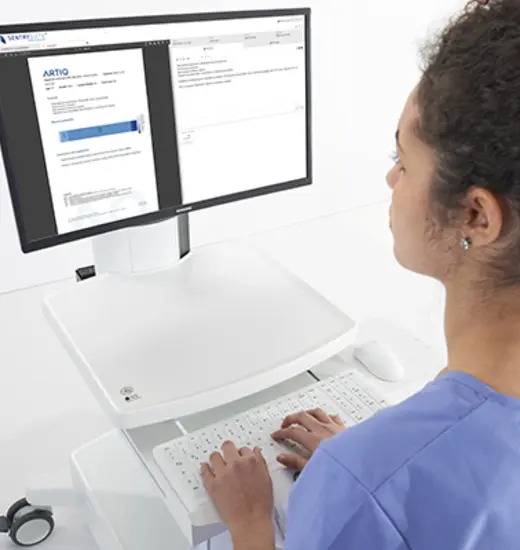
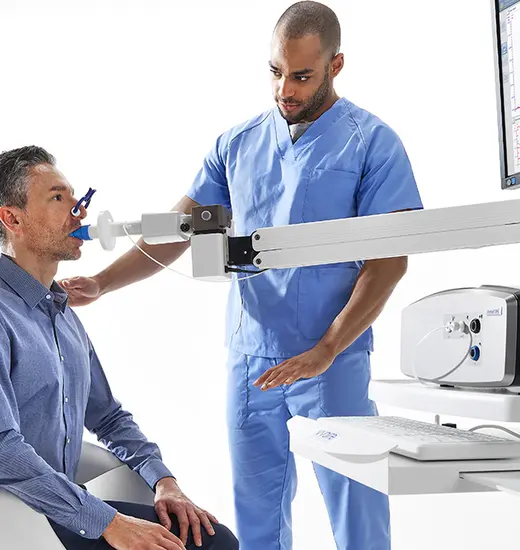



ARTIQ.PFT for SentrySuite™ Software Solution
The ArtiQ.PFT artificial intelligence (AI) software automates the interpretation of pulmonary function tests (PFTs). It reduces the administrative burden and allows pulmonologists to focus on clinical decision making and patient consult. ArtiQ.PFT uses artificial intelligence to support the detection of disease patterns early in the diagnostic process and thus holds the potential to reduce redundant testing.
Based on PFT data (spirometry, airways resistance, lung volumes and diffusion capacity) and patient characteristics (age, pack-years, sex, height, etc.), an automated report is generated in less than 1 second. Each report contains three key components, the PFT protocol, disease probabilities and recommendations for further steps.
Please note, all products, services, or features of products and services may not be available in your local area. Please check with your local Vyaire representative. The information provided in this site is intended for healthcare professionals.
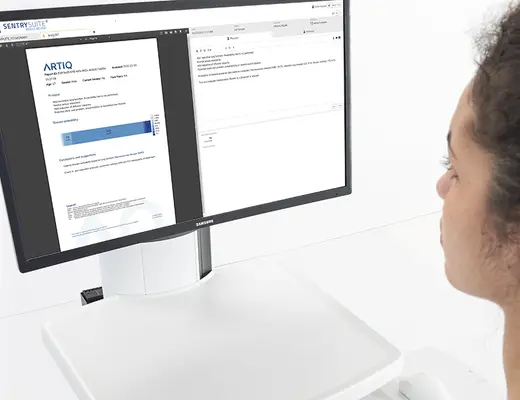
Seamless integration into SentrySuite
- Select in “Review” mode ArtiQ.PFT interpretation and optional integrate text into SentrySuite Report. Further interpret the report when needed and send to the Hospital Information System (HIS).
- Create ArtiQ.PFT interpretation report directly from “Visit View” and open report.

- Patient information
- Protocol
- Disease probabilities
- Conclusions & suggestions
- Physicians & technicians comments via SentrySuite

- Spend your time wisely Spend your time on clinical decision making and patient consultation, not on PFT protocolling. While using ArtiQ.PFT you can save up to 1,5 manhours every day.
- Boost your consistency Standardize every PFT report at your center in line with international guidelines.
- Maximize diagnostic accuracy Leverage the power of AI to predict probabilities of disease presence.
- Define your next steps Get recommendations on appropriate next steps.
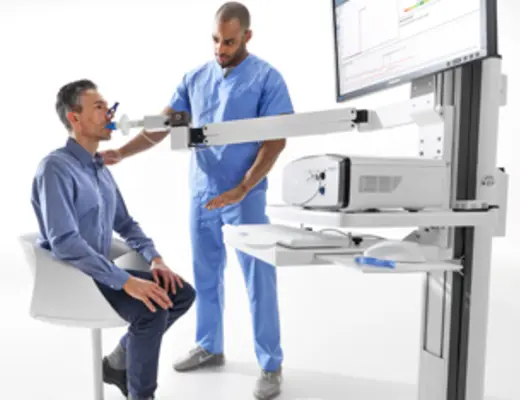
The algorithms of ArtiQ.PFT has been validated in a European multi-center study published in the European Respiratory Journal. The study investigated if artificial intelligence is accurate enough to provide a second opinion that is helpful for pulmonologists. Therefore, 120 pulmonologists from 16 European hospitals evaluated 50 cases based on pulmonary function test results and some basic clinical information, resulting in 6000 independent interpretations. The AI software examined the same data. When asked for the most probable diagnosis, the AI software recognized the disease pattern correctly in 82% of the cases, compared
to 45% on average by the pulmonologists.1
1. Topalovic et al. Eur Resp J. 2019


